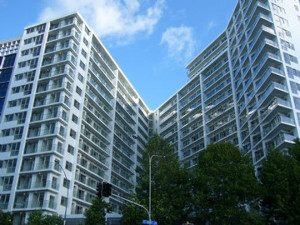Multi-unit insurance cover: The lowdown
Landlords are being warned about insurance pitfalls when they buy in multi-unit buildings without body corporates.
Monday, June 28th 2021, 10:43AM

The Insurance Council says while some new properties are being marketed without body corporates, it can often be a false saving.
It has produced a guide to buying homes in multi-unit complexes.
Not all multi-unit buildings have a body corporate set up as some are fee simple/freehold.
Different insurers have different guidelines about insuring individual units in multi-unit buildings.
The number of units in a building may also affect an insurer’s decision to offer cover, the type of cover and the cost.
Multi-unit buildings
Body corporates are set up to manage property consisting of multiple individually owned homes, apartments or units.
Amongst other responsibilities under the Unit Titles Act, a body corporate is required to insure all the units in the building as well as property that is jointly owned by all unit holders.
This includes driveways, corridors, lobbies and gardens and leaves no gaps in cover.
Body corporates are also required to buy replacement insurance where possible. This means “replacement (sum insured or floor area based)” or “new for old” cover rather than “market value” or any other lesser type of cover.
The council says buying insurance for any new investment is important, especially if the home is attached to other homes.
This could be two or more units attached to each other (each divided by a wall), one or more blocks of townhouses or a multi-storey apartment building.
Buyers can insert a “subject to insurance” clause (ie “subject to availability of insurance suitable to the purchaser”) into any sale and purchase agreement before it is signed, even for standalone houses.
If intending to purchase at auction it is important that insurance has been confirmed in advance of the auction.
If a property has been set up as a body corporate this will be shown in the Certificate of Title as being unit title.
Becoming a unit title holder means the buyer automatically becomes a member of the body corporate.
The body corporate will arrange to insure not just the common property but the entire building, including all units.
The cost of the insurance is then incorporated into the body corporate fees charged to each unit owner so that everyone pays insurance for their unit plus their share of any common property.
It means that all unit holders have building insurance.
There is also a second benefit because one insurance company is responsible for all building claims, says the council. This makes the claims process simple and easy.
For example, where a shared wall between two units is damaged there is only one policy to lodge a claim against and one insurer will settle the claim.
Fee Simple/freehold in multi-unit buildings
Complexities will arise at claims time if some units are not insured or the level of cover differs between units and insurers.
For these reasons many insurers will not agree to insure individual units of a multi-unit complex.
Generally if an insurer does agree to insure just one unit within such a property they will not provide cover for common (shared) property such as driveways, playground, BBQ area, swimming pool, gymnasium.
This leaves potential gaps in cover, unless the owners’ committee arranges insurance under a separate policy.
Duplex, semi-detached properties and townhouses
The same considerations apply to homes that are attached to just one or two other properties.
The more independent a property is, the more likely an insurer will be to offer cover for an individual unit.
Attachment to other properties by side walls is preferable to property attached above or below and it is preferable if there is no or little common property to insure.
Easements may be documented in property titles and can apply to any type of property. Easements show whether joint responsibility or obligations apply to property owned by or shared with anyone else.
Easements can be hard to interpret, but a solicitor can explain what any easements mean.
Cross lease
In a cross lease, an owner has a share of the freehold title in common with the other cross leaseholders and a leasehold interest in the particular area and building occupied.
The council says this situation alone does not usually influence an insurer’s decision to offer cover or the terms of cover, however it can affect claims.
For example, other title owners of the cross-lease property could refuse to allow materials to be delivered or builders to access/work on site without their permission, delaying repairs, especially if the driveway is going to be blocked.
Solicitors can provide more information to help with a buyer’s understanding of cross leases.
Commercial use
If any part of a multi-unit building is used to run a business or for earning income it may be necessary to insure the whole building, including any residential units, under a commercial policy.
There are implications for EQCover which is insurance provided by the Earthquake Commission for residential property only.
Some insurers will also look to offer commercial style insurance, or insurance specially designed for multi-unit buildings when there are more than a specified number of properties (individual dwellings/units) involved or a building has more than a specified number of storeys.
| « Insurance FAQs for uncertain times |
Special Offers
Comments from our readers
No comments yet
Sign In to add your comment
| Printable version | Email to a friend |


